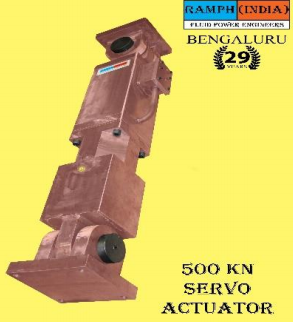A servo cylinder is a high-performance actuator designed for precision motion control, combining the benefits of traditional hydraulic or pneumatic cylinders with the accuracy and efficiency of servo motor technology. These cylinders are commonly used in industries where precise positioning, speed control, and force regulation are critical, such as in robotics, automotive, aerospace, packaging, and manufacturing automation.
Servo cylinders consist of a servo motor, which drives the piston within a cylinder, providing precise linear motion. Unlike conventional cylinders, which depend on fluid or air pressure to generate motion, servo cylinders operate with electrical power, allowing for highly controlled and repeatable movements. The integration of the servo motor offers significant advantages, such as smoother operation, faster response times, and greater energy efficiency compared to traditional systems.
One of the key benefits of servo cylinders is their ability to offer real-time feedback and control. This is achieved through sensors like encoders or potentiometers, which constantly monitor the position, speed, and force of the cylinder. The control system can make instantaneous adjustments, ensuring the cylinder moves exactly as programmed, which is essential in high-precision tasks. This level of accuracy is ideal for applications that require detailed motion control, such as material handling, assembly lines, or packaging operations.
Servo cylinders are also valued for their energy efficiency. Unlike pneumatic or hydraulic systems, which can experience energy losses due to air or fluid leakage, servo cylinders use electrical power more effectively. This reduces operating costs and contributes to a more eco-friendly setup, especially in large-scale industrial operations.
Another major advantage of servo cylinders is their programmability. By integrating with various control systems, they can be easily programmed to follow complex motion patterns. This flexibility makes them suitable for a wide variety of applications, from simple push/pull tasks to intricate, multi-axis movements.
In summary, servo cylinders offer superior precision, control, and energy efficiency compared to traditional actuators. Their real-time feedback, programmability, and ability to provide smooth, accurate motion make them indispensable in industries requiring high-performance motion control solutions. As industries continue to embrace automation, the demand for advanced actuators like servo cylinders is expected to grow, making them a vital component of modern industrial equipment.
